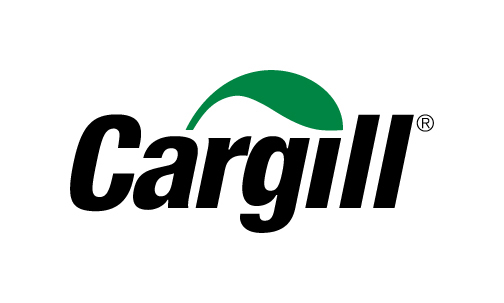Economics of Soil Health to be Assessed Across North America
Published 05-29-19
Submitted by The Soil Health Institute
 Cargill and the Soil Health Institute partner to bring greater sustainability to farm operations, while ensuring their productivity.
Cargill and the Soil Health Institute partner to bring greater sustainability to farm operations, while ensuring their productivity.Management practices that improve soil health can be good for the farm and the environment, but farmers need information on economics when deciding whether to adopt these practices. To address this critical issue, Cargill and the Soil Health Institute have announced a new partnership to assess, demonstrate and communicate the economics of soil health management systems across North America.
“At Cargill, we’re committed to helping farmers increase their productivity so that we can nourish a growing population. We work with partners like The Soil Health Institute to give farmers the tools and resources they need to bring greater sustainability to their operations, while ensuring their productivity,” said Ryan Sirolli, global row crop sustainability director, Cargill. “Farmers are looking for a more robust picture of the economic benefits of investing in soil health on their farms. By partnering with the Soil Health Institute, we will be able to provide the research and insight they need to understand how investing in soil health can provide both financial and environmental benefits. Together, we can help farmers build drought resilience, increase yield stability, reduce nutrient loss and increase carbon sequestration.”
“The most desirable information on how soil health affects profitability comes from real-world, on-farm data. However, a challenge is that every farm is different, making it difficult to know how repeatable results are from one farm to another,” said Dr. Wayne Honeycutt, CEO of the Soil Health Institute. “Insight into how reproducible results are across different soils, climate zones, and production systems can be obtained with experimental research plots; recognizing that research plots are very different from farms.”
“The bottom line is that when it comes to assessing economics, both types of information are useful - the research experiment and the farmer experience,” said Dr. Cristine Morgan, Chief Scientific Officer of the Soil Health Institute. “That is why we are using a two-pronged approach for assessing profitability of soil health systems that integrates results from research sites with those experienced by nearby farmers,” she added.
Supported by an $850,000 grant from Cargill, Dr. Morgan will lead the Soil Health Institute’s Agricultural Economist in developing enterprise budgets to compare profitability of soil health-promoting systems with conventional management systems on approximately 100 farms near 120 research sites across North America. “This will significantly expand our existing partnership with the National Association of Conservation Districts and USDA-NRCS for understanding profitability of soil health systems,” added Morgan.
“Together, Cargill and the Soil Health Institute can address the single most influential factor affecting adoption of soil health systems ─ the economic impact on farmers. This partnership will produce more meaningful and profitable programs for growers and accelerate adoption so that agriculture can be part of the solution to the environmental challenges we face,” added Sirolli.
For more information, contact Byron Rath brath@soilhealthinstitute.org or April Nelson media@cargill.com.
About the Soil Health Institute
The Soil Health Institute (www.soilhealthinstitute.org) is a non-profit whose mission is to safeguard and enhance the vitality and productivity of soil through scientific research and advancement. The Institute works with its many stakeholders to identify gaps in research and adoption; develop strategies, networks and funding to address those gaps; and ensure beneficial impact of those investments to agriculture, the environment and society.
About Cargill
Cargill’s 155,000 employees across 70 countries work relentlessly to achieve our purpose of nourishing the world in a safe, responsible and sustainable way. Every day, we connect farmers with markets, customers with ingredients, and people and animals with the food they need to thrive.
We combine 153 years of experience with new technologies and insights to serve as a trusted partner for food, agriculture, financial and industrial customers in more than 125 countries. Side-by-side, we are building a stronger, sustainable future for agriculture. For more information, visit Cargill.com and our News Center.

The Soil Health Institute
The Soil Health Institute
About the Soil Health Institute
The Soil Health Institute is a global non-profit with a mission to safeguard and enhance the vitality and productivity of soil through scientific research and advancement. We bring together leaders in soil health science and the industry to help farmers, ranchers, and landowners adopt soil health systems that build drought resilience, stabilize yield, and benefit their bottom line.
The Institute’s team of scientists, holding doctorates in various soil science and related disciplines, has developed highly effective soil health targets and standardized measurements to quantify progress at achieving regenerative and sustainable agricultural systems, and leads the cutting-edge fields of carbon sequestration and decoding the soil microbiome.
Healthy soils are the foundation for rejuvenating our land. Together, we can create a secure future for all, mitigate the effects of climate change, and help agriculture and organizations meet production and environmental goals at scale.
Visit soilhealthinstitute.org to learn more and follow us on LinkedIn, Twitter, and Facebook.
More from The Soil Health Institute

